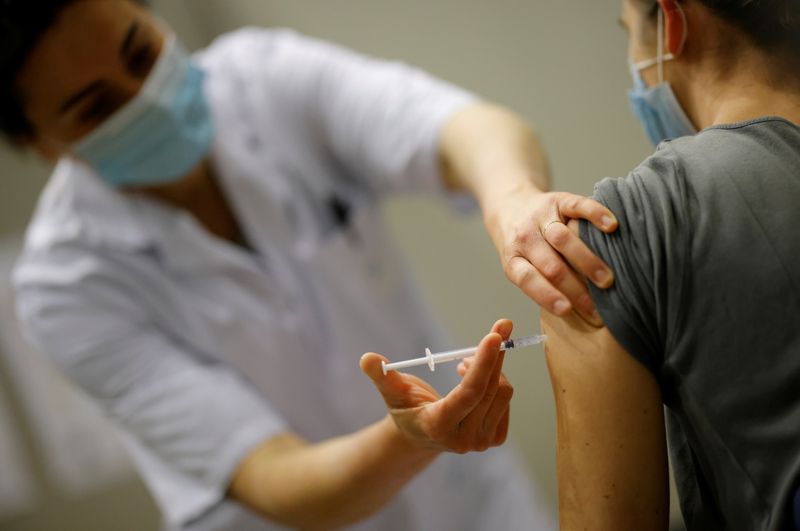BERLIN (Reuters) -The suspension of Johnson & Johnson’s coronavirus vaccine could delay efforts to inoculate most people in the European Union by over two months, scientific information and analytics company Airfinity said on Wednesday.
“If the EU can’t use the J&J vaccine indefinitely it could push the timeline for vaccinating 75% of the population back into December,” London-based Airfinity said in a forecast update provided to Reuters.
Without Johnson & Johnson, the EU would reach 75% coverage – viewed as a benchmark for achieving herd immunity – by Dec. 8, Airfinity projected, compared with an earlier expected date of Sept. 30.
In the United States a lack of Johnson & Johnson vaccine would push back reaching the 75% threshold to Sept. 17 from July 22, it estimated.
U.S. federal health agencies on Tuesday recommended pausing use of Johnson & Johnson after six women under the age of 50 developed rare blood clots after receiving its shot, in a fresh setback to efforts to tackle the pandemic.
Johnson & Johnson said it would delay rollout of the vaccine to Europe, a week after regulators there said they were reviewing rare blood clots in four recipients of the shot in the United States.
The halt follows restrictions imposed by many European countries on using an alternative vaccine from AstraZeneca, in response to similar reports of rare blood clotting among recipients.
AstraZeneca is now approved for use only among older adults in the EU, representing another bottleneck in the bloc which has ordered both shots for its 27 members, in addition to those from Pfizer and Moderna.
In analysis provided to Reuters that predated the Johnson & Johnson news, Airfinity estimated that giving AstraZeneca only to people of working age would delay vaccination campaigns in France, Italy and Spain by around a month.
(Reporting by Douglas Busvine; Editing by Maria Sheahan and Mike Harrison)



















